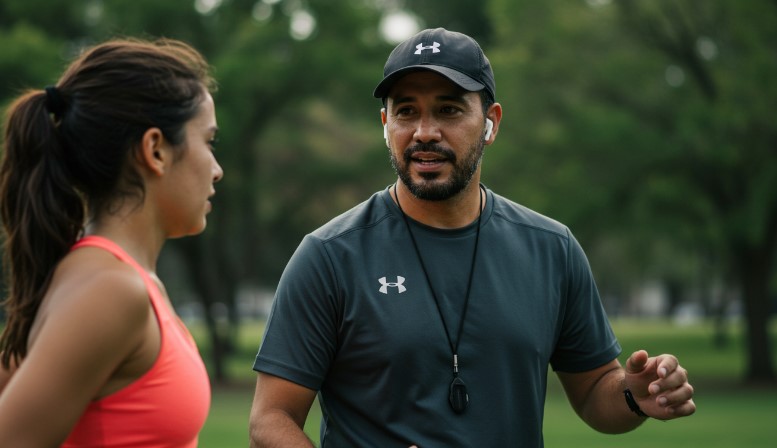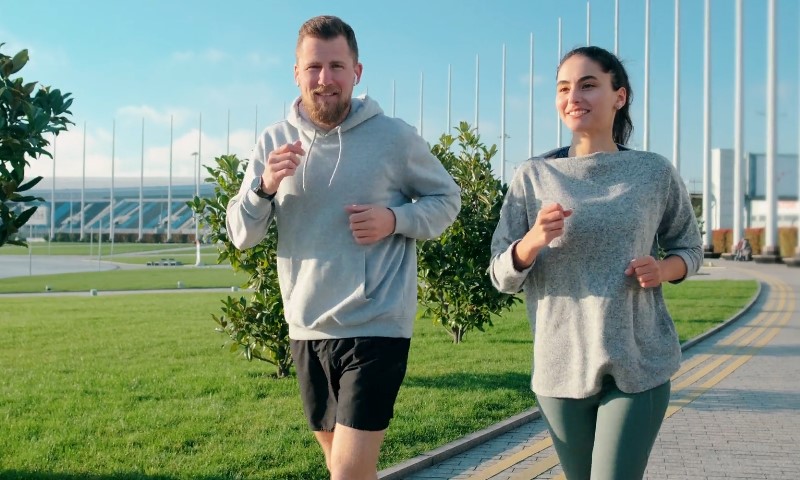Mastering coaching skills separates average coaches from exceptional ones.
Clients seek more than motivational words; they need clarity, growth, and accountability.
Coaches who invest in sharpening their skillset build stronger client relationships, deliver lasting results, and grow their influence.
The goal here is to break down eight essential skills every coach should develop to level up their practice and reputation.
1. Active Listening

Active listening goes far beyond simply hearing words. It means being fully present, both emotionally and mentally, to grasp the client’s emotions, goals, and concerns. Trust builds when a coach genuinely tunes in without jumping to conclusions or solutions.
Practicing active listening involves:
- Reflecting back what clients say to show they’ve been heard
- Paraphrasing to confirm accurate interpretation
- Summarizing key points to maintain clarity and direction
By engaging in full-body listening, eye contact, open posture, minimal distractions, coaches demonstrate empathy and presence.
Emotional intelligence also plays a critical role, allowing coaches to detect subtle emotional cues and respond with care. Clients are more likely to open up and stay motivated when they feel seen and respected.
2. Business and Self-Marketing Skills
Success as a coach depends not only on coaching but on business acumen. Self-marketing, branding, and client acquisition are necessary for sustainability and impact.
Coaches who specialize in guiding students through competitive educational paths, such as online ABSN programs, must also focus on niche branding and targeted outreach
Strategies include:
- Creating a clear personal brand and message
- Engaging regularly on social media
- Encouraging client referrals and testimonials
- Listing services on coaching directories and websites
An entrepreneurial mindset turns coaching into a sustainable profession. Consistency in outreach, storytelling, and value-sharing transforms coaches into trusted authorities.
Building a business requires effort, but it positions coaches to reach and serve more people effectively.
3. Powerful Questioning

Powerful questions prompt reflection and self-discovery. They challenge assumptions, shift perspectives, and unlock solutions clients didn’t realize were within reach.
Effective questioning serves as a flashlight, helping clients illuminate what matters most.
The focus here is not on advice-giving but on inquiry. Open-ended, non-directive questions allow clients to think critically and take ownership of decisions.
For example, instead of asking “Why didn’t you do that?” try “What got in the way?”
Frameworks like the GROW model (Goal, Reality, Options, Will) show how structured questioning enhances clarity and forward movement.
When coaches use powerful questions effectively, sessions become energizing instead of overwhelming, with clients taking the lead in their transformation.
4. Emotional Intelligence
Emotional intelligence equips coaches to manage their emotions while staying attuned to others’. It consists of five core components:
- Self-awareness
- Self-regulation
- Motivation
- Empathy
- Social skills
In practice, emotional intelligence helps coaches pause before reacting, recognize emotional undercurrents in conversation, and navigate sensitive topics without derailing progress.
A coach with high emotional intelligence knows when to challenge and when to support, when to probe and when to pause.
Sessions can often bring up fear, self-doubt, or resistance. Coaches who master emotional awareness create space for breakthroughs while minimizing tension.
The result is a more grounded presence that fosters safety, growth, and lasting impact.
5. Goal Setting and Accountability
Helping clients set clear, actionable goals transforms aspirations into concrete plans. Vague desires turn into focused outcomes when structured correctly.
SMART goals, Specific, Measurable, Achievable, Relevant, and Time-bound, provide a roadmap.
Coaches play a vital role in tracking progress and adjusting strategies as needed. Tools such as milestone check-ins, progress charts, and accountability agreements keep clients on course. Regular reflection ensures efforts remain aligned with long-term objectives.
Feedback loops strengthen commitment, and clients begin to associate coaching with tangible success.
Coaches who emphasize structure without rigidity build confidence and resilience in their clients.
6. Empathy and Rapport Building
Empathy involves feeling with the client, not feeling for them. It differs from sympathy by focusing on connection rather than pity.
Coaches who practice empathy create an environment where clients feel safe sharing fears, failures, and goals.
Rapport begins with non-verbal cues:
- Open body language
- Nodding
- Eye contact
Verbal cues such as mirroring language patterns or acknowledging emotions strengthen that bond. Clients are more likely to engage when they sense they are not being judged.
Trust builds over time, but small, consistent efforts to connect speed up the process.
Once rapport is established, clients tend to become more open, leading to more effective and rewarding sessions.
7. Giving and Receiving Feedback

Constructive feedback serves as a foundation for client growth when delivered with care and intention.
A well-structured approach builds confidence, highlights blind spots, and drives consistent action without triggering defensiveness.
When introducing techniques for effective feedback, a few key strategies stand out:
- Use the “sandwich method”: Begin with a positive comment, follow with a critical insight, then finish with positive reinforcement. Used sincerely, it softens difficult input while reinforcing trust.
- Focus on the future: Questions like “How might you approach this differently next time?” shift attention toward improvement instead of dwelling on errors.
- Avoid vague statements: Specific, behavior-based feedback carries more value than general praise or criticism.
Feedback is not a one-way exchange. Coaches who actively invite client input show openness and humility.
Asking, “What’s working for you?” or “What could we adjust in our sessions?” promotes a collaborative atmosphere.
Used properly, feedback becomes:
- A tool for growth
- A check-in on alignment
- A mirror for mutual learning
Mutual feedback turns coaching into a relationship built on clarity and continuous improvement, not one-sided evaluation.
8. Coaching Presence and Flexibility
Presence means more than physical attendance. It refers to being grounded, focused, and emotionally available during sessions. Clients notice when coaches are fully engaged, which sets the tone for deeper conversation.
Flexibility matters because no two sessions unfold the same way. A coach may plan an agenda, only to find the client needs emotional space instead.
Being adaptable means honoring what the moment requires without losing sight of the broader goal.
Staying centered, especially in emotionally charged situations, allows a coach to respond rather than react.
Presence plus flexibility equals resilience, a quality that anchors both coach and client during transformational work.
The Bottom Line
Technical know-how is only one part of the equation. Real success comes through emotional intelligence, presence, communication, and adaptability.
Clients crave connection, clarity, and results; skills covered here make that possible.
Continued growth, feedback, and practice refine these strengths and elevate the impact of every session.
Related Posts:
- How Can You Start a Career as a Running Coach?
- Running Coach Salary - How Much Do They Really Make?
- Lower Back Pain While Running? Here's What You Need to Know
- How Long Does It Take to Train for a Half Marathon?
- 25 Simple Running Motivation Tips To Get You Moving
- How Far Is a Half Marathon? Everything You Need to Know







